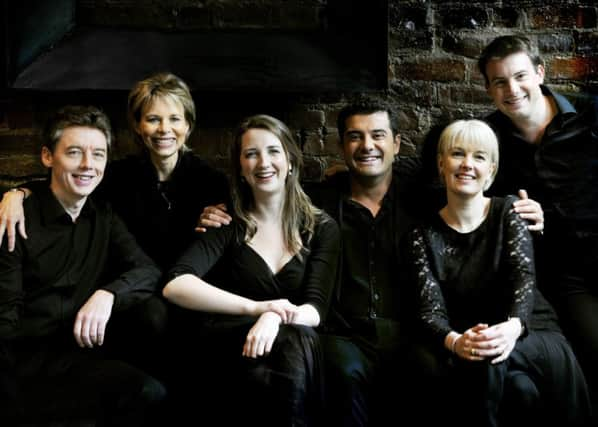Classical review: The Piano: Alasdair Beatson & Hebrides Ensemble, Glasgow


The Piano: Alasdair Beatson & Hebrides Ensemble - Recital Room, City Halls, Glasgow
* * * *
Why mention that? Well, some regret was being expressed by attendees at Saturday’s Alasdair Beatson/Hebrides Ensemble programme over the cancellation of the highly-anticipated recital by Denis Kozhukhin scheduled later that evening, as well as his earlier morning masterclass.
Advertisement
Hide AdWas his appearance pulled due to low ticket sales? The curt line from Glasgow Life was that cancellation was “due to circumstances outwith our control”. All ticket holders were told they would “receive a full refund and complimentary ticket to Elisabeth Leonskaja and the Emerson Quartet” the following night. What does that tell us about ticket sales for both these events? Do the maths.
Nor would I have been pleased to have bought a ticket for Leonskaja, only to find that part of the audience, by default, ended up getting theirs for nothing.
At least there was a proportionally healthy turnout for Scots pianist Alasdair Beatson and the ever-flexible Hebrides, given they were in the small and intimate Recital Room at the City Halls with a fascinating programme, ranging from Schubert’s single-movement Quartettsatz, to contemporary works by Thomas Adés and Judith Weir.
Judith Weir’s piano quartet Arise! Arise! is a tiny, glittering jewel of a piece. Based on a folksong, soaked in pastoral modes and harmonies like echoes of Vaughan Williams, but illuminated by glistening personalised textures so typical of Weir, it was a gentle aperitif to the tougher language of Thomas Adès’s Piano Quintet that followed.
Once the Adès built up a head of steam – the opening seemed a little nervously played – and the ensemble got to grips with his apparent fascination for reconciling tonal nostalgia (a delicious Schubertian second subject) with mystical and, in the final moments, ecstatic dissonance, this performance became thoroughly gripping.
Beatson’s skill as a sensitive chamber musician shone through, giving gravitational strength to a work that, despite its occasional lack of soul, possesses an arresting inevitability in the way it strives to its final convincing resolution.
Advertisement
Hide AdThere was more Adès to end with, Darkness visible, the composer’s beautiful and reflective reinterpretation of a 17th century lute song by John Dowland. Around shimmering ghost-like reminders of the original song, Adès writes free and diverse explosions that simultaneously fragment Dowland’s melody. Beatson’s delivery of the final moments – an untouched statement of the original that dissolves unfinished into the ether was a magical moment.
The Schubert quartet was less impressive, not so much as a result of the Hebrides’ interpretation, which had spirit and tunefulness at every turn; but stemming from the unstable intonation of the first violin. A disappointing irritation in an otherwise engaging recital.
Seen on 08.11.14